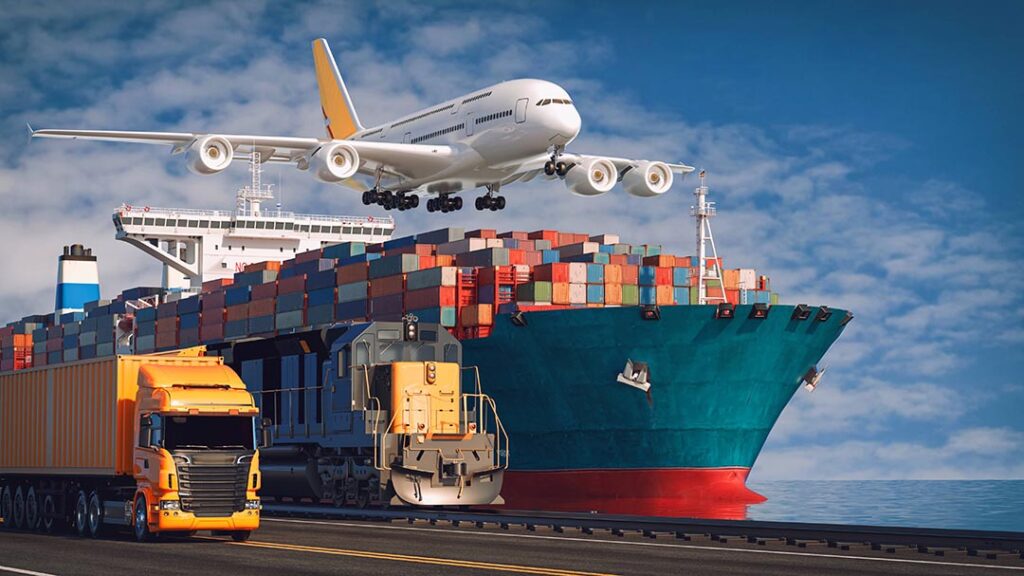🚚 National Logistics Policy 2025: Transforming Bangladesh’s Trade Backbone
📦 Logistics: The Backbone of Trade
In 2025, logistics efficiency is not a luxury—it’s a necessity. As Bangladesh rises as a regional trade powerhouse, the government’s launch of the National Logistics Policy (NLP) 2025 marks a bold step to modernize its supply chain infrastructure, cut trade costs, and position itself as a competitive export hub in South Asia.
From Chattogram Port upgrades to digital freight corridors, this policy is more than a roadmap—it’s the transformation engine for the next decade of growth.
🔗 See how Bangladesh-Agent.com supports exporters with logistics and trade

🧭 What Is the National Logistics Policy?
The NLP 2025 is Bangladesh’s first comprehensive logistics strategy designed to:
-
Reduce logistics costs (currently ~16% of GDP)
-
Simplify customs & regulatory bottlenecks
-
Develop multi-modal transport (road, rail, air, sea)
-
Encourage private investment in logistics infrastructure
-
Enable faster, cleaner, and cost-effective cargo movement
The ultimate goal: make Bangladeshi exports globally competitive.
💡 Why It Matters: Bangladesh’s Trade Snapshot
| Indicator | Status (2024/2025) |
|---|---|
| Export Contribution to GDP | 15.5% |
| Logistics Cost as % of GDP | ~16% (vs. 8–10% in India/Vietnam) |
| Average Port Dwell Time (Cargo) | 4–5 days |
| Lead Time for U.S. Apparel | 45–60 days |
🔗 More logistics insights from the World Bank
🔄 Key Reforms Under NLP 2025
✅ 1. Logistics Coordination Authority (LCA)
A new centralized body to align ministries, ports, customs, and transport agencies—reducing duplication and red tape.
✅ 2. Integrated Digital Platform
A “Single Window” trade and logistics portal for:
-
Customs clearance
-
Shipment tracking
-
E-way billing and digital documentation
-
Permit applications
🔗 Bangladesh National Single Window – BNSW
✅ 3. Private Sector Partnerships
Encouraging PPP investment in:
-
Inland Container Depots (ICDs)
-
Cold chains for agri-exports
-
Dry ports and logistics parks
-
Smart warehousing with IoT & ERP
🔗 Partner with Bangladesh logistics providers
🚢 Trade-Enabling Infrastructure Projects
🏗️ Chattogram & Mongla Port Modernization
-
Expansion of container terminals
-
Real-time vessel scheduling
-
Faster customs clearance
🛣️ Dhaka–Chattogram Expressway
-
Expected to reduce transport time from 8 hours to under 4 hours
🚆 Rail Freight Revival
-
New freight corridors between economic zones
-
ICD rail connectivity to factories in Gazipur, Narayanganj, and Comilla
🛫 Air Cargo Upgrades
-
HSIA Airport (Dhaka): Dedicated cargo terminal (underway)
-
New opportunities for high-value, time-sensitive exports (e.g., pharma, seafood, leather goods)
📈 Economic Impact: Why It Matters for Exporters
According to the World Bank:
A 1% reduction in logistics costs can lead to a 7.4% increase in exports.
That’s billions in untapped opportunity for Bangladesh.
With NLP 2025, expect:
-
Lower container handling costs
-
Shorter order lead times
-
Reduced in-transit inventory waste
-
Better port-to-factory synchronization
🔗 Explore end-to-end export solutions
🧵 RMG Sector: The Biggest Beneficiary
The ready-made garment (RMG) industry, which contributes over 80% of Bangladesh’s exports, will benefit significantly:
-
Faster delivery = fewer order cancellations
-
Compliance-ready warehousing for global buyers
-
More reliability in just-in-time (JIT) production
-
Easier movement between bonded warehouses and ports
🔗 Work with WRAP- and GOTS-certified garment suppliers
🥶 Special Focus: Cold Chain for Agri & Seafood Exports
Bangladesh’s emerging sectors like:
-
Fresh produce
-
Shrimp & frozen fish
-
Processed foods
…need reliable cold chain logistics to meet global quality standards.
NLP 2025 plans:
-
Temperature-controlled logistics parks
-
Reefer container availability
-
Smart tracking for perishable cargo
🔗 Need help exporting agri-products from Bangladesh?
🔍 Challenges & Road Ahead
Despite the policy’s ambitions, a few hurdles remain:
🔺 Skill Gaps in Logistics Labor Force
The policy will require training programs for truck drivers, warehouse managers, freight forwarders, and IT system operators.
🔺 Land Acquisition & Bureaucratic Delays
Timely execution of projects like logistics hubs or inland depots can face delays.
🔺 Harmonization with Trade Policy
To maximize impact, logistics and export regulations need to work hand in hand.
🤝 How Bangladesh-Agent.com Supports the Policy Vision
At Bangladesh-Agent.com, we help global buyers and exporters:
-
Coordinate shipping & documentation under new policies
-
Connect with bonded warehouses and logistics providers
-
Manage multi-modal export strategies (air, road, sea)
-
Work with customs-cleared suppliers in Economic Zones
🔗 Let us streamline your export operations
📣 Final Thoughts
The National Logistics Policy 2025 is a game-changer. For a country whose economy depends on efficient trade, this policy lays the groundwork for faster, cleaner, and more profitable exports.
As Bangladesh moves from a low-cost to a high-value exporter, logistics is the bridge. And that bridge is being built—today.